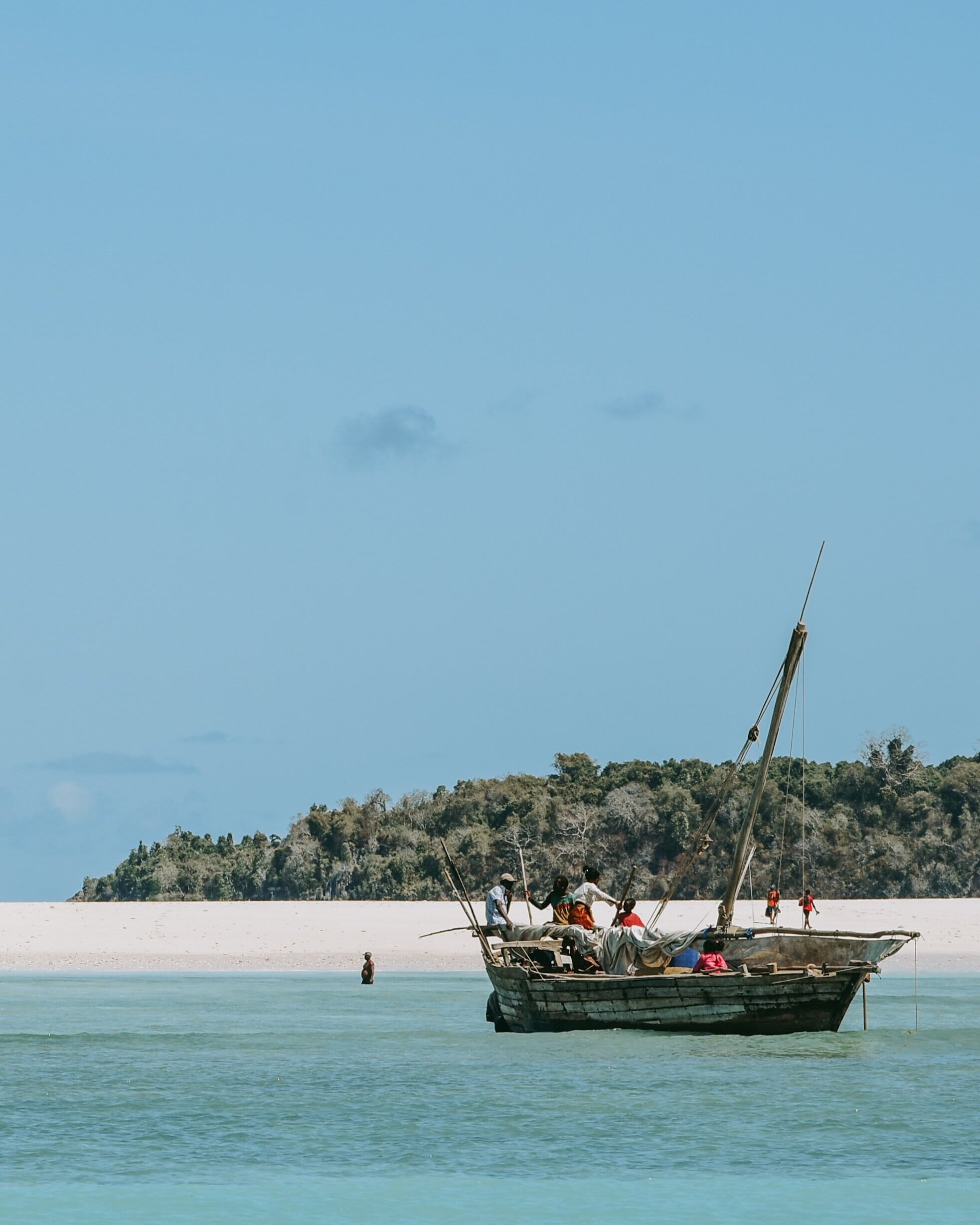As negotiations between the EU and Madagascar continue for a new tuna SFPA protocol, the last of which expired on 31 December 2018, the Malagasy government has signed two protocols allowing access to Malagasy waters for around 30 vessels belonging to Chinese investors.
The two fishing agreement protocols were signed between the Malagasy Ministry of Agriculture, Livestock and Fisheries (MAEPM) and the Malagasy company Côte d'Or, whose ten shareholders are Chinese. The first of these protocols allows 12 multi-purpose fishing vessels (trawlers/seiners/netters) to fish for pelagic, demersal, cephalopod and crustacean species, including shrimps, - Madagascar’s “pink gold”- in the waters off both the East and West coasts of the country. In practice, these vessels will have access to all the resources found in Malagasy. A second protocol signed by the Ministry with the same company provides for the deployment of 16 other vessels that will fish for demersal fish, pelagic fish and crustaceans using nets, traps and longlines.
Chinese presence in Malagasy waters
These protocols, kept secret until now by the Ministry of Fisheries, only confirm the growing grabbing of Madagascar's fishing resources by fleets of Asian origin, and the concerns that this has generated among Malagasy small-scale fishers for several years.
Small-scale fishermen have been concerned about the growing influence of Asian fleets for years now. Photo: Sandy Manoa
In 2017, the arrival of six Chinese trawlers from the RUISHUN company, under the cover of the local joint venture Maprosud, created a stir among the small-scale fishers of South-West Madagascar. After having fished illegally in the coastal zone, the RUISHUN fleet set sail to ask, at the beginning of 2020, for the autorisation to fish in Senegalese waters, together with about fifty other vessels, mostly of Chinese origin. A large local mobilization has so far discouraged the Senegalese authorities from granting them the requested authorizations.
In 2018, an investment agreement between Madagascar and a Chinese company, signed under opaque conditions, provided for the deployment of 330 vessels in Madagascar's coastal fisheries!
Two years later, with the advent of a new government in Madagascar, the project seemed to have fallen through.
A similar modus operandi in the whole of Africa
The modus operandi for the access of these vessels of Chinese origin always seems to be the same, in Madagascar, Senegal or other African countries. Invited by the authorities to come and fish when they do not have a fishing licence, the authorities then legalise the situation by setting up a bogus joint venture, followed by the reflagging of the Chinese vessels under the national flag, and then the issuing of licences. If we take for example the Malagasy company Côte d'Or, which deploys about 30 vessels in Malagasy waters through these two protocols, the Chinese investors have only gathered together the modest capital of 20 million ariary (4300 euros), giving it all the characteristics of a front company.
Another issue with these two protocols is that, unlike the official protocols, they are not subject to any compensation for the State and include only derisory annual fees. In return, these vessels will have access to multiple fisheries, including fisheries for which high fees are normally paid, such as shrimp or lobster. With their “multi-species” licences, these vessels will also be exempted from existing sectoral regulation and management for high commercial value species such as shrimp. These protocols therefore represent a significant loss of revenue for the Malagasy government.
But the biggest threat is that this active policy of welcoming vessels of Chinese origin puts in jeopardy the future of Malagasy coastal communities that depend on fishing: increased overexploitation of Malagasy resources, destruction of the coastal marine environment, a drop in fishing yields and a reduction in the size of catches, thus endangering small-scale coastal fishing communities.
The active policy of welcoming these foreign fleets puts Madagascar's small-scale fishing, which is essential for national food security, at risk. The government should ensure that resource management is improved to increase the resilience of these communities. Photo: Sandy Manoa/Unsplash.
An estimated 100,000 people are involved in small-scale fishing in the country and most of the resources they target, also targeted by foreign semi-industrial and industrial trawlers, are in a state of overexploitation.
Our recent state of play highlighted the enormous needs of Madagascar's traditional small-scale fisheries, and stressed the urgency to improve resource management as a sine qua non for the survival of these communities, which are essential contributors to the country's food security.
The lax attitude of the Malagasy authorities, encouraging front joint ventures, through opaque fishing protocols, to fish even more some of these already overexploited fish resources is all the more surprising given that the country is considering a new master plan for fishing and aquaculture as well as a plan to fight against illegal fishing aimed at promoting sustainable exploitation and valorisation of resources for the period 2019-2023. An important element of this plan is transparency in fisheries management: transparency in the allocation of licences and fishing agreements in particular.
It is time for the Malagasy authorities to “do as they say” and “say what they do.”
Banner photo: Port of Hankifi, Madagascar by Sandy Manoa - @th3sand7/Unsplash








For the agreement to contribute effectively to the Sustainable Development Goals, it is essential that the forthcoming negotiations, prior to the thirteenth ministerial conference, focus on the main threat to artisanal fisheries in Africa: overfishing and overcapacity, especially by foreign-owned vessels.